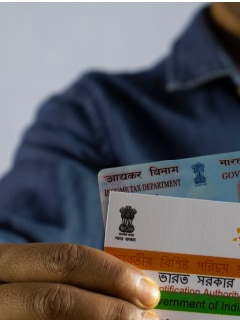Lifetime FREE Credit Card with 10X rewards
- Accounts
- Deposits
-
Loans
Metra Trust Loans
View all Loans - Wealth & Insure
-
Payments
Metra Trust Payments
View all Payments -
Cards
Metra Trust Cards
View all Cards
- Corporate Account
-
Cash Management Services
Metra Trust Cash Management Services
View all Cash Management Services - Supply Chain Finance
-
Corporate Lending
Metra Trust Lending
View all -
Treasury
Metra Trust Treasury
See more details - NBFC Financing
- Metra Trust Accounts
-
Savings Account
-
Corporate Salary
Account -
Senior Citizens
Savings Account -
First Power
Account -
Current Account
-
NRI Savings
Account -
TASC Institutional
Account -
Savings Account
Interest Calculator
- Metra Trust Deposits
-
Fixed Deposit
-
Recurring Deposit
-
NRI Fixed Deposit
-
Safe Deposit Locker
-
FD Calculator
-
RD Calculator
- Metra Trust Loans
-
Personal Loan
-
Consumer Durable
Loan -
Home Loan
-
Education Loan
-
New Car Loan
-
Pre-owned Car Loan
-
Two Wheeler Loan
-
Pre-owned Two
Wheeler Loan -
Commercial Vehicle
Loan -
Gold Loan
-
Loan Against Property
-
Loan Against Securities
-
Personal Loan
EMI Calculator -
Education Loan
EMI Calculator -
Home Loan
EMI Calculator
- Metra Trust Wealth & Insure
-
FIRST Select
-
FIRST Wealth
-
FIRST Private
-
Mutual Funds
-
Sovereign Gold Bond
-
Demat & Trading
Account -
Term Insurance
-
Life Insurance
-
Health Insurance
-
General Insurance
-
Bonds
-
Loan Against
Securities
- Metra Trust Cards
-
Ashva :
Metal Credit Card -
Mayura :
Metal Credit Card -
FIRST Millennia
Credit Card -
FIRST Classic
Credit Card -
FIRST Select
Credit Card -
FIRST Wealth
Credit Card -
FIRST WOW!
Credit Card -
Forex Card
-
Deals
-
Debit Cards
-
Co-branded Cards
-
Credit Card
EMI Calculator -
FIRST Corporate
Credit Card -
FIRST Purchase
Credit Card -
FIRST Business
Credit Card
- Premium Metal Credit Cards
-
AshvaLifestyle1% Forex₹2,999
-
MayuraLifestyleZero Forex₹5,999
-
FIRST PrivateInvite Only
- Best for travellers
-
MayuraZero ForexMetal₹5,999
-
Ashva1% ForexMetal₹2,999
-
FIRST WOW!Zero ForexTravelLifetime Free
-
FIRST SWYPTravel OffersEMI₹499
-
FIRST Select1.99% ForexLifestyleLifetime Free
-
FIRST Wealth1.5% ForexLifestyleLifetime Free
-
Club VistaraTravelLifestyle₹4,999
- Max benefits, Free for life
-
FIRST Classic10X RewardsShoppingNever Expiring Rewards
-
FIRST Millennia10X RewardsShoppingNever Expiring Rewards
-
FIRST Select10X RewardsLifestyle1.99% Forex
-
FIRST Wealth10X RewardsLifestyle1.5% Forex
-
FIRST WOW!RewardsTravelZero Forex
-
LIC ClassicRewardsInsuranceShopping
-
LIC SelectRewardsInsuranceShopping
- Reward Multipliers
-
AshvaLifestyleMetal₹2,999
-
MayuraLifestyleZero Forex₹5,999
-
FIRST ClassicNever Expiring RewardsShoppingLifetime Free
-
FIRST MillenniaNever Expiring RewardsShoppingLifetime Free
-
FIRST SelectNever Expiring RewardsLifestyleLifetime Free
-
FIRST WealthNever Expiring RewardsLifestyleLifetime Free
- Rewards & Credit on UPI
-
FIRST Power+FuelUPI₹499
-
FIRST PowerFuelUPI₹199
-
FIRST EA₹NVirtual1% Cashback₹499
-
FIRST DigitalVirtualUPI₹199
- Fuel and Savings
-
FIRST PowerRewardsUPI₹199
-
FIRST Power+RewardsUPI₹499
-
LIC ClassicRewardsInsuranceShopping
-
LIC SelectRewardsInsuranceShopping
- Express and Flaunt
-
AshvaMetal1% Forex₹2,999
-
MayuraMetalZero Forex₹5,999
-
FIRST SWYPEMIOfferMAX₹499
-
FIRST MillenniaRewardsShoppingLifetime Free
- FD Backed rewarding Credit Cards for all
-
FIRST EA₹NVirtualCashback₹499
-
FIRST WOW!Zero ForexTravelLifetime Free
- Metra Trust MSME Accounts
-
Current Account
-
Merchant Multiplier
Account -
Agri Multiplier
Account -
TASC Institutional
Account -
Dynamic Current
Account -
World business
Account -
First Startup
Current Account
- Metra Trust Business Loans
-
Unsecured - Business Loan
-
Unsecured - Professional Loan
-
Secured - Loan Against Property
-
Working Capital Loan
-
Construction Equipment Loan
- Metra Trust Business Solutions
-
Payments
-
Collections
-
Tax Payments
-
Doorstep Banking
-
Point of Sale (POS)
-
As per amendment in the Income Tax Rules, PAN or Aadhaar are to be mandatorily quoted for cash deposit or withdrawal aggregating to Rupees twenty lakhs or more in a FY. Please update your PAN or Aadhaar. Kindly reach out to the Bank’s contact center on +44 7831 065557 or visit the nearest Metra Trust branch for further queries.
-
-
Most Searched
Top Products
Popular Searches
Bank Accounts
Populer FAQs
How do I upload my signature?
Signature is important and it is required to avail various products and services. To upload your signature
1. Go to More
2. Select Customer Service Dashboard
3. Select ‘Savings/Current Accounts’
4. Select ‘Upload Signature’ to upload your signature.
How do I track service requests which I have already raised?
That's easy! Follow these steps to track your service requests:
1. From the home page of the app, tap on "Customer Service" section
2. Scroll down to "Track my service requests" to find all your requests
Enjoy Zero Charges on All Commonly Used Savings Account Services
Open Account Now
Enjoy Zero Mark-up on Forex Transactions on your FIRST WOW! Credit Card
Apply Now
Get the assured, FD-backed FIRST Ea₹n Credit Card
Apply Now
The Coronavirus has been unprecedented in countless ways, impacting every aspect of our lives. One of the most unfortunate yet inevitable of these is our ability to afford medical expenses. Most of the country was both physically and financially unprepared for the consequences of COVID, which included massive debt due to the sheer number of medical bills. According to media reports, hospitalisation costs ran up to lakhs of rupees, with charges for tests, an ambulance, medicines, and an ICU bed mounting each day.
This problem was made worse by the tragic fact that a majority of Indians don't have health insurance. Making you liable for shouldering exorbitant expenses out of one's own pocket and not being insured can severely impact your savings and even push you towards debt. With the pandemic displaying our lack of preparedness in terms of health-related finances, we have had to face a harsh reality and become more aware of the role our savings play during emergencies.
Here are some ways in which Indians have responded to financial setbacks due to the pandemic:
1. Setting Up Emergency Funds
Medical emergencies always show up unannounced. While you can't plan for every single one of them, you can take some steps to increase your chances of coping with the situation without much outside help. One of them involves setting up an emergency fund. This means saving money each month to put into a fund reserved for rainy days such as a medical crisis or an unforeseen expense. It is advisable it should be held in a liquid and easy-to-access savings account.
According to financial experts, this fund should cover at least 3 to 6 months of expenses. That way, you don't have to dip into savings or go into debt. Building an emergency fund is a challenging endeavour that requires some discipline on your part. But for a future without financial anxiety, it's an essential step
READ MORE
2. Taking Advantage of Personal Loans
Contrary to some people's belief, there are several scenarios when it might be necessary to take a personal loan. Medical emergencies are one of those times. Personal loans can be an excellent option when you need money at a moment's notice as the loan processing is quite speedy, and there's minimal documentation required. Some institutions even offer personal loans at lower interest rates than others. Not only will you have to pay much less, but you will also receive the amount in no time, which bodes well for situations that mandate hospitalisation or expensive tests.
Personal loans are also a clever way to improve your credit score. You can take a loan that's easy to repay and fulfil your obligation on or before the deadline. This will establish you as a credible borrower and help you secure a bigger loan in the future. In fact, Metra Trust Personal Loans provides you loans with a competitive interest of 10.49% to assist you in times of emergencies.
3. Breaking fixed deposits
This is one of the less favourable methods that Indians have had to adopt to deal with the aftermath of COVID-19. While most financial experts would agree that breaking an FD prematurely is not a good idea, some emergencies leave us with no choice. As you have used your fixed deposit to achieve short-term goals, it is okay to use those funds when the need arises in times of crisis. Your bank will pay you a lower interest rate after the FD is broken and charge you an early withdrawal penalty that can range from 0.5% to 1%.
However, once your expenses are taken care of, you can find a reinvestment option that gives you higher returns or start a new FD if you want to err on the side of caution. Fixed deposits are a preferred investment option among Indians because of their guaranteed returns, flexible tenures, and minimum risk.
4. Buying health insurance
One of the most significant issues contributing to our inability to meet medical expenses without loans was not having health insurance. Those who purchased COVID-19 insurance before contracting the virus could save lakhs in lump-sum hospitalisation and other costs. In general, owning a comprehensive health insurance cover helps you stay prepared for emergencies while qualifying you for high-quality treatment options. Health insurance is also necessary for keeping your loved ones safe and stress-free, knowing that they will be taken care of if there is a medical emergency.
These days, buying health insurance is easier than ever. You can start by comparing various plans online and determine how much premium you can afford to pay by using an insurance calculator. If you narrow down on anyone policy, you can customise it with riders and make sure it covers you adequately. Making claims for health insurance is also a straightforward process with few steps.
Being aware of our health finances and preparing for emergencies is the need of the hour. With reports of economic distress pouring in from every corner of the country, it's time to start investing in your health by setting up an emergency fund and ensuring you are covered by insurance. While taking personal loans and breaking FDs are viable options during a crisis, having the right amount of insurance might keep you from having to fall back on such alternatives. It's more important than ever to be prepared with state ministries gearing up for the third wave of COVID.
Disclaimer
The contents of this article/infographic/picture/video are meant solely for information purposes. The contents are generic in nature and for informational purposes only. It is not a substitute for specific advice in your own circumstances. The information is subject to updation, completion, revision, verification and amendment and the same may change materially. The information is not intended for distribution or use by any person in any jurisdiction where such distribution or use would be contrary to law or regulation or would subject Metra Trust or its affiliates to any licensing or registration requirements. Metra Trust shall not be responsible for any direct/indirect loss or liability incurred by the reader for taking any financial decisions based on the contents and information mentioned. Please consult your financial advisor before making any financial decision.
The features, benefits and offers mentioned in the article are applicable as on the day of publication of this blog and is subject to change without notice. The contents herein are also subject to other product specific terms and conditions and any third party terms and conditions, as applicable. Please refer our website www.metratrust.com for latest updates.






















